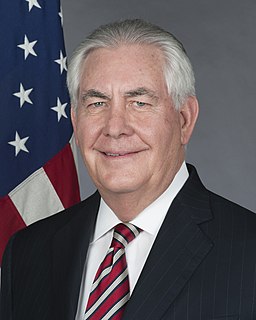A Quote by Maajid Nawaz
The rise of ISIS in Iraq is a wider threat to the stability of the Middle East and the West than many realise.
Related Quotes
Sadly, a U.S. invasion of Iraq 'would threaten the whole stability of the Middle East' - or so Amr Moussa, secretary-general of the Arab League, told the BBC on Tuesday. Amr's talking points are so Sept. 10: It's supposed to destabilize the Middle East. The stability of the Middle East is unique in the non-democratic world and it's the lack of change in Iraq, Iran, Saudi Arabia, Syria, Egypt that's turned them into a fetid swamp of terrorist bottom-feeders.
The tactical issue is ISIS or ISIL in the greater Levant area, which is essentially Syria, and Iraq, Lebanon, Jordan, et cetera. But the wider problem is not just trans-regional in that part of the world, but it's also global. I mean, 40 to 50 countries supplying fighters to this current fight in the Middle East? Come on.
For too long, many nations, including my own, tolerated, even excused, oppression in the Middle East in the name of stability. Oppression became common, but stability never arrived. We must take a different approach. We must help the reformers of the Middle East as they work for freedom, and strive to build a community of peaceful, democratic nations.
I'd like to see stability and a unified Iraq. A young democracy will provide the stability we look for. I will tell you that if we just isolate ourselves from the Middle East and hope for the best, we will not address the conditions that had led young suiciders to get on airplanes to come and attack Amerika in the first place.
It's important that we keep our priorities straight. And we believe that the first priority is the defeat of ISIS. That by defeating ISIS and removing their caliphate from their control, we've now eliminated at least or minimized a particular threat not just to the United States, but to the whole stability in the region.




































